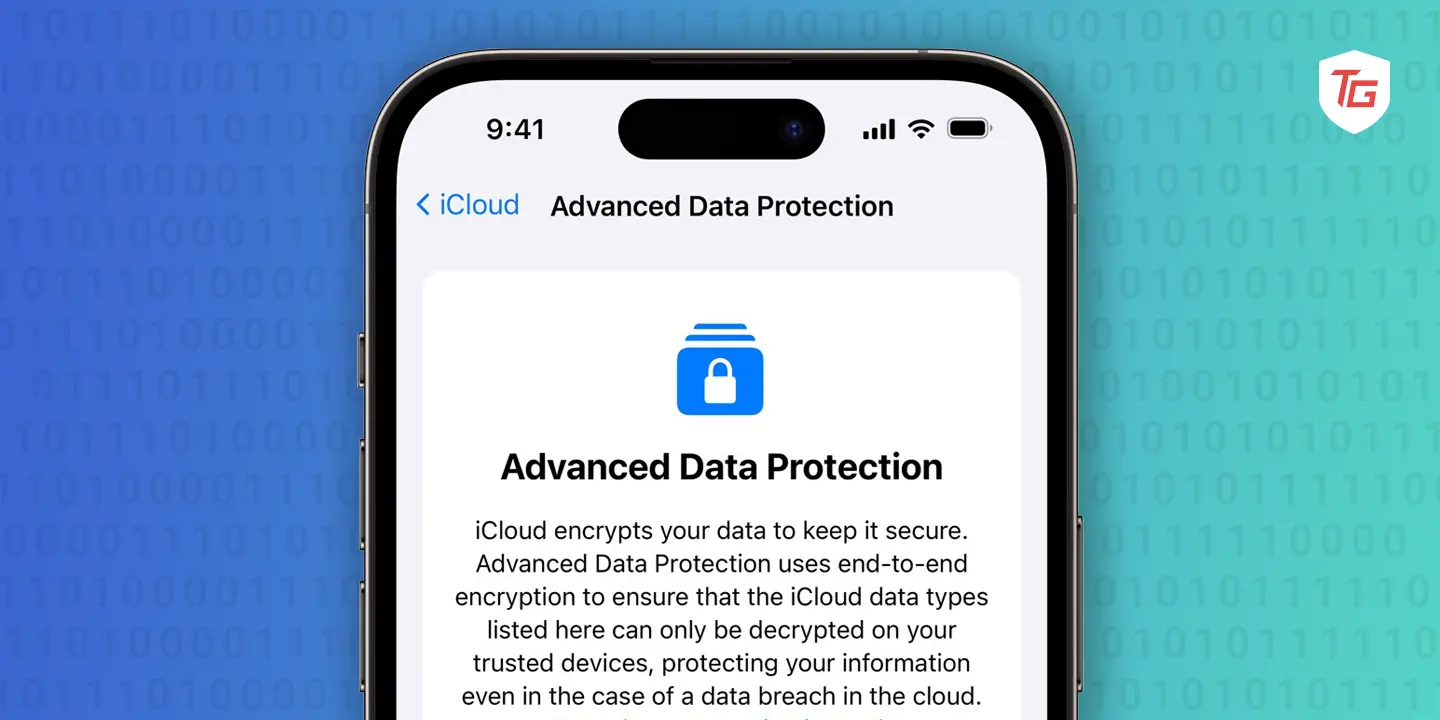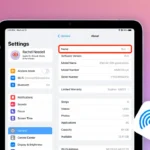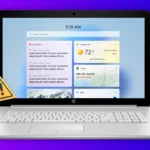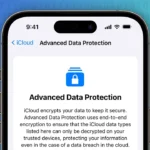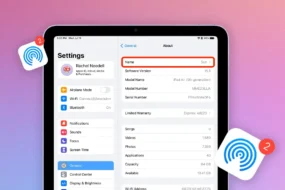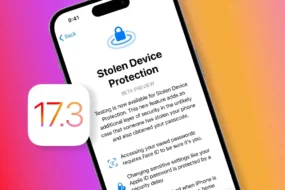- In September 2021, an Israeli Spyware NSO group compromised Apple devices via a “zero-click exploit” and got broad power over user iPhones.
- In August 2022, Apple identified and patched two vulnerabilities, allowing malicious web pages to execute code on the user’s device.
- In July 2023, Apple again patched zero-day exploits and released a batch of Rapid Security Response updates to iOS and macOS.
If you own an iPhone, then you undoubtedly have the safest device in your handright now.
The iPhone claims that “privacy is built-in from the beginning.” From the moment you open your new iPhone to every time you use an app, control is all yours. And that is the most prime reason to buy an iPhone.
Despite the extensive level of security for your data, there are still risks and vulnerabilities that are exploited by cybercriminals.
And such exploitation leaves your iPhone open to data theft.
So, how do you protect your data against cyber threats to give you peace of mind?
Don’t worry, we are going to help you. In this article, we have listed six tips that you should follow to keep your iPhone data protected and stay safe online.
So, ready to safeguard your data? Let’s dive in.
How Do You Secure iPhone Data in 2024?
Security is critical for your iPhone’s data, as it may contain data that you may not want to share with anyone. Hence, essential photos, videos, and documents of your families and close ones that are just for you need to be protected from scams and attacks.
So, what’s next? How will you secure it from the scammers? – we have got you covered; follow the tips mentioned below:
1. Use Built-in Security of iPhone
The best way to protect your iPhone data from security breaches and attacks is by using the robust built-in security of the iPhone. Instead of relying on third-party security applications, you must use the iPhone’s internal security features.
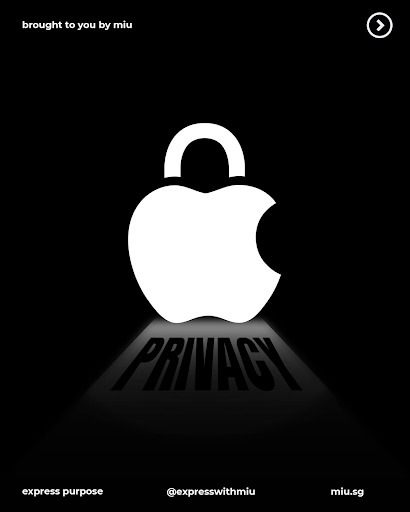
The built-in security features minimize how much information is available to anyone. By holding the key to your vault, you can adjust your shared data. The intrinsic security features assist you with preventing security breaches against cyber attacks and reduce the risk of getting scammed by malicious cyber attacks.
Here are a few tips that you should follow to use the in-built security of your iPhone to protect your data:
- Set a strong passcode to unlock your iPhone. This is the best way to protect your data and safeguard your device.
- After ten consecutive failed password attempts, set your iPhone to erase all your data, photos, and settings.
- Change your iPhone settings to auto-lock after a specific period that is, 30 seconds, 1 minute, 2 minutes, or more.
- Turn on “Find My Phone” to find your iPhone in case of getting stolen or lost. This feature helps you find your lost iPhone and prevent anyone else from accessing your data.
2. Keep your Apple login ID Secure
The Apple ID consists of an email address and password; accessing such critical information allows hackers to gain information stored on your iCloud. Further, it also allows attackers access to your app store, Apple Music, and other important apps.
Hence, to make your Apple login ID secure, follow the steps mentioned below:
- Always sign in with a pass key; it allows the user to use a Touch ID or Face ID to log in instead of a password.
- Use your Apple ID instead of memorizing and creating usernames and passwords for signing in to accounts.
- Remember to check the lock icon 🔒while browsing Safari; this sign verifies your session is encrypted and secure.
- Do not share your Apple ID and password with anyone or even your family members. Set up family sharing if you want to share your information with your family.
- Never click on unknown links in emails, messages, or social media.
3. Preserve Your Web Browsing
Protecting your web browser prevents you from creating opportunities for attackers. Most devices today are connected to a local network via Wi-Fi that uses radio signals to connect with your devices. Those radio signals can be secured or opened; hence, it is crucial to protect your device by being proactive.
To preserve your web browsing, you can use iCloud Private Relay. This feature is available for iCloud+ subscribers and helps prevent networks and websites from creating a detailed profile about you.
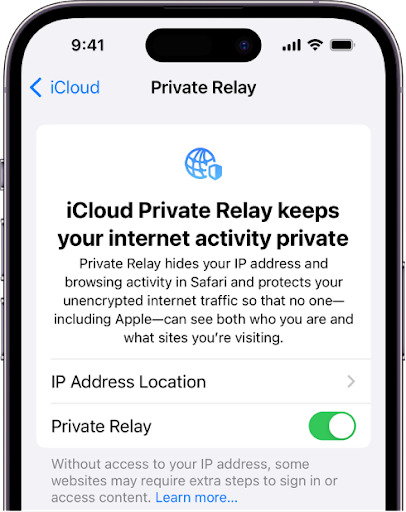
When iCloud Private Relay is on, the traffic leaving your iPhone gets encrypted and sent through two separate internet relays. Further, these features also prevent network providers from collecting your browsing activity on Safari and seeking your exact IP location.
Note: iCloud Private Relay is not available in all countries or regions. For more information, check out the list of iPhone feature availability websites.
The other alternative to browsing safely online is using a Private Browser. You can use a Private browser to open private tabs that do not appear in history or the list of accounts on the other devices. Further, the tabs browsed privately are not even shared with your other Apple devices, even if you signed in with the same Apple ID.
Regardless, it is essential to prioritize the security of your Apple ID and data, even when logging in through a PC or computer. So, to secure your data on your computer, you can follow the tips mentioned in the guide on how to secure your data on computer.
4. Protect Your Device with Lockdown Mode
Lockdown mode in iPhone devices is a hardened security feature that provides protection to your data at an extremely high-level.
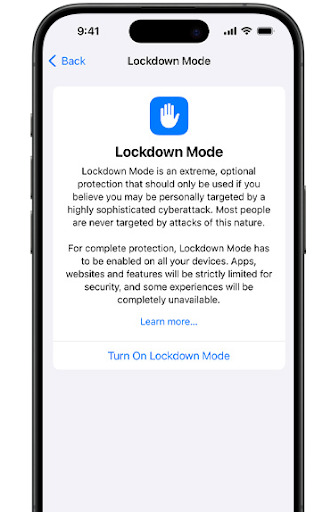
When sophisticated remote attacks target your iPhone or personal account, you can protect yourself using Lockdown Mode. Lockdown mode offers extreme levels of protection to a few users because of who they are or what they are doing. Such robust security mode is provided to private companies developing state-sponsored mercenary spyware or high-dignity personalities.
The Lockdown Mode protects web browser Safari, messages, social media accounts, emails, and other Apple apps.
To turn on Lockdown Mode, follow the steps mentioned below:
- Tap Open Settings
- Privacy and Security
- Lockdown Mode
5. Protect Yourself From Getting Scammed By Phishing
Phishing refers to a fraudulent attempt to get personal information from you to hack your account or to get critical information like a credit card password or Apple ID password. Such scams are usually done through messages and email where unknown actors send emails or SMS from legitimate companies or individuals, but it’s not.
Beware of such scams; never click links within the email or SMS. Turning on the two-factor authentication is the best protection against phishing attempts.
Further, to protect your Apple account and data from such phishing attacks, you can follow the guidelines mentioned below:
- Never share your personal information like Apple ID, password, credit card details, or personal details with anyone.
- Close the tab quickly in case you click the link mentioned in the email that looks right, but the URL doesn’t match.
- Download software and third-party apps from authentic sources only.
- Never use Apple Gift Cards to make other kinds of payments.
6. Leverage the Capabilities of Advance Data Protection for iCloud
Advanced data protection for iCloud is Apple’s highest cloud data security level. By default, iCloud secures your data information by encrypting it in transit, storing it in encrypted format, and ensuring your encrypted key into Apple data centers.
Users with updated devices of 16.2 or later can leverage the capabilities of Advance Data Protection.
The highest level of security protects almost everything across the device, providing end-to-end encrypted protection to vast amounts of iCloud data. Further, it ensures that all the encrypted data is decrypted only when the correct user requests on their trusted device.
According to Ivan Krstić, Apple’s head of Security Engineering and Architecture, “For users who opt in, Advanced Data Protection keeps most iCloud data protected even in the case of a data breach in the cloud.”
Advance Data Protection from iCloud on more data categories includes:
- Device backup
- Messages backup
- iCloud Drive
- Notes
- Photos
- Reminders
- Safari bookmarks
- Siri Shortcuts
- Voice Memos
- Wallet passes
Frequently Asked Questions on iPhone Data Protection
Two-factor authentication is the best way to keep your Apple ID and data secure and safe. Its design ensures that even if someone tries to access your account from another device, the user needs to authenticate with a security code and a password sent to your trusted device.
Advanced Data Protection for iCloud offers the highest level of cloud data security. The security provides most iCloud data, thereby protecting it using end-to-end encryption.
You can follow these simple steps to improve your iPhone data security:
Open the Settings app> Tap your name, then tap iCloud.
Scroll down, tap Advanced Data Protection >, and Turn on Advanced Data Protection.
Bottom Line
Advanced security for your data, strict compliance and regulation, and assured information protection drive customers to the Apple iPhone. Along with the Advanced Data Protection system built into the very heart of the platform, users can breathe easy knowing that they are always running with the latest security.
In case you missed!

